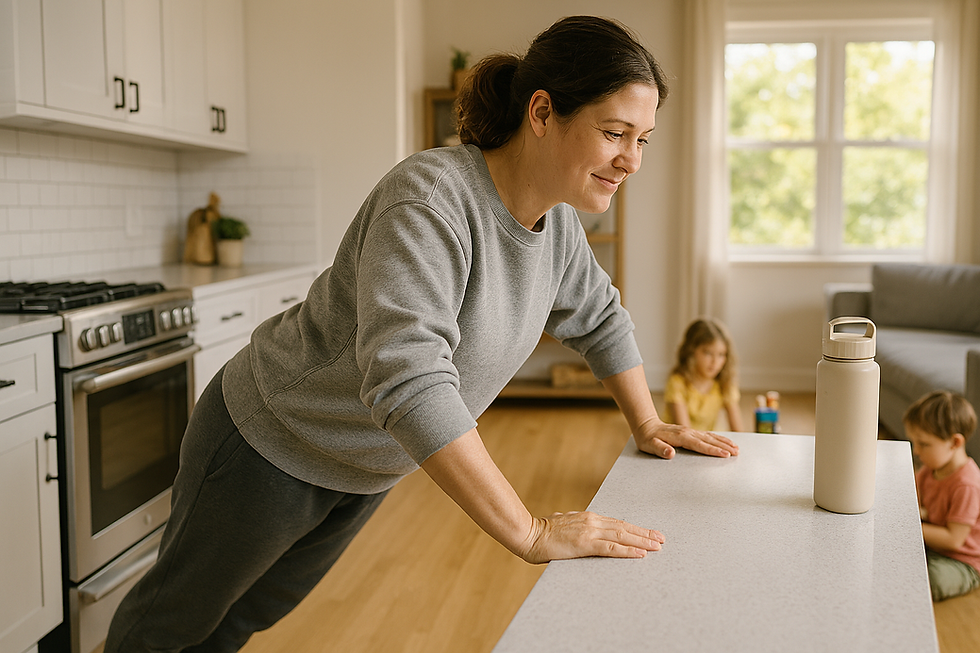Using Fitness Challenges to Raise Awareness for Mental Health
- Steve Mitchell
- May 28, 2025
- 4 min read
Fitness has long been associated with physical health, but increasingly, it is recognized as a powerful tool for mental health awareness. Fitness challenges, in particular, can inspire communities, foster engagement, and promote mental well-being. This post explores how fitness challenges can effectively raise awareness for mental health issues and empower individuals to contribute positively to societal change.
The Rise of Fitness Challenges
Fitness challenges have gained massive popularity across social media platforms. They are often designed to encourage people to achieve specific goals, such as walking a certain number of steps per day, completing a particular workout, or participating in group activities. These challenges not only promote physical fitness but also cultivate community spirit and personal resilience.
When fitness challenges are related to mental health, they have the potential to reach a wider audience. For instance, a simple challenge like committing to 30 days of mindfulness or a dedicated walking challenge can motivate individuals to prioritize their mental health. As they share their experiences online, they normalize conversations about mental health struggles, reducing stigma and fostering a supportive environment.

Fitness Challenges and Their Impact on Mental Health
Research suggests that regular physical activity leads to improved mental health outcomes. According to the American Psychological Association, exercise is linked to reduced symptoms of anxiety and depression. By participating in fitness challenges, individuals can experience both physical and psychological benefits.
Building Community: Fitness challenges often bring people together, creating strong social ties. Participants may engage with each other on social media, share their progress, and offer encouragement. These interactions can promote a sense of belonging and significantly reduce feelings of isolation—one of the major contributors to poor mental health.
Promoting Physical Activity: Movement is crucial for mental well-being. Goals set through fitness challenges inspire participants to stay active. For example, the “Jump Rope Challenge” or “30-Day Yoga Challenge” prompts individuals to engage their bodies, which aids in the release of endorphins—hormones known for boosting mood.
Raising Awareness: Fitness challenges can serve as a platform to discuss mental health issues. Challenges can be themed around different causes, allowing participants to tap into important conversations. For example, the “Push-Up Challenge" could attract attention to alarming statistics, such as how suicide is one of the leading causes of death among youth.

Strategies for Creating Impactful Fitness Challenges
If you're considering launching a fitness challenge for mental health awareness, here are some strategies to ensure maximum impact:
Define Clear Goals: Begin by establishing what you want to achieve. Are you looking to educate participants about mental health? Or perhaps you're aiming to raise funds for a specific organization? Clear objectives will guide your challenge and keep participants motivated.
Incorporate Mental Health Education: Alongside the physical aspect, provide educational materials. Share information about mental health statistics, resources, and ways to seek help. This approach helps participants connect their physical efforts with important mental health conversations.
Offer Incentives: Creating a system of rewards can motivate participants. People are more likely to engage when there's something to work towards.
Engage Important Partners: Collaborate with mental health organizations, local gyms, or fitness influencers to broaden your reach.
Share Personal Stories: Encourage participants to share their stories related to mental health and fitness. This transparency humanizes the struggle and empowers others to open up about their challenges.

The Role of Social Media in Fitness Challenges
Social media is a game-changer when it comes to spreading awareness about mental health through fitness challenges. Platforms like Instagram, Facebook, and TikTok have made it easier to connect with a global audience. Here's how social media can amplify your fitness challenge:
Hashtags: Create a unique hashtag for your challenge. This will help participants share their progress and experiences. For instance, hashtags like #PushForBetter or #MentalHealthFitnessChallenge can spread your message far and wide.
Live Streams: Host live workout sessions or Q&A segments about mental health. This not only engages your audience but allows immediate interaction, creating a community feeling.
Highlight Achievements: Share participant achievements regularly. Spotlighting individuals makes participants feel valued and encourages more people to join your cause.
Engaging with the Community
Fitness challenges for mental health awareness should extend beyond social media. Here are practical ways to engage your local community:
Organize Local Events: Host fitness events like charity runs, group classes, or community walks. These gatherings foster relationships and encourage participants to support one another.
Educational Workshops: Incorporate workshops that educate participants about mental health. Invite mental health professionals to speak and provide resources for those who may need help.
Using fitness challenges to raise awareness for mental health can be a fulfilling endeavor, drawing communities together while addressing critical issues. Through action and awareness, we can help individuals feel less isolated and more empowered in their mental health journey.
Final Thoughts
Engaging in fitness challenges not only promotes physical health but significantly contributes to mental well-being. As society becomes more open to discussing mental health, combining fitness with awareness initiatives can lead to profound change. Whether it's through community workouts or social media engagement, every effort counts. By participating in or organizing a fitness challenge, you help foster discussions that benefit individuals and communities alike.
Let's all work towards a healthier and more supportive world.




Comments